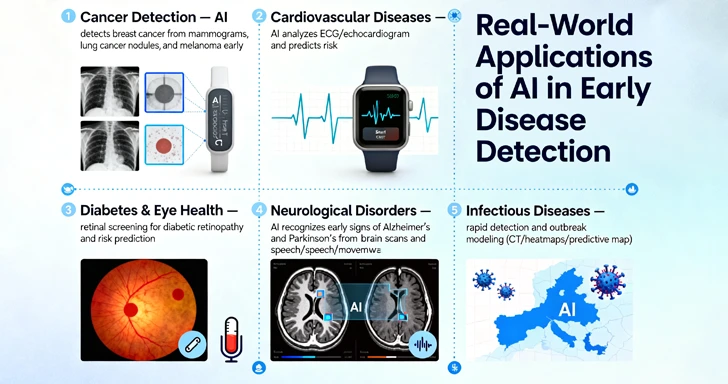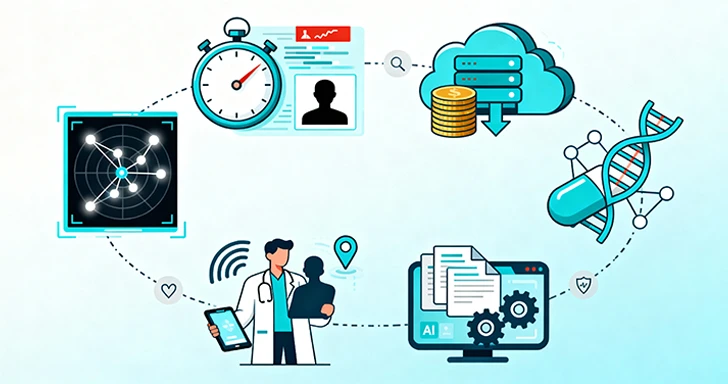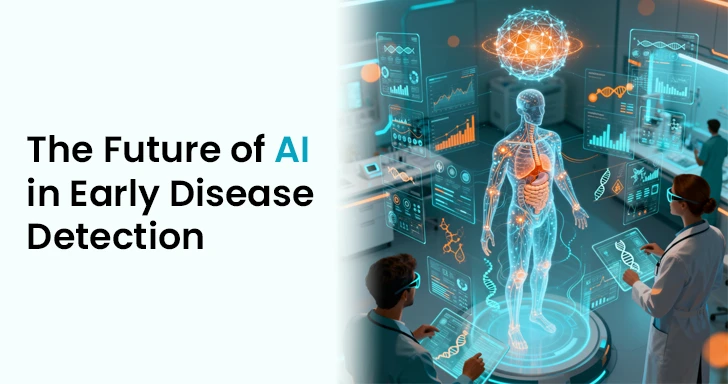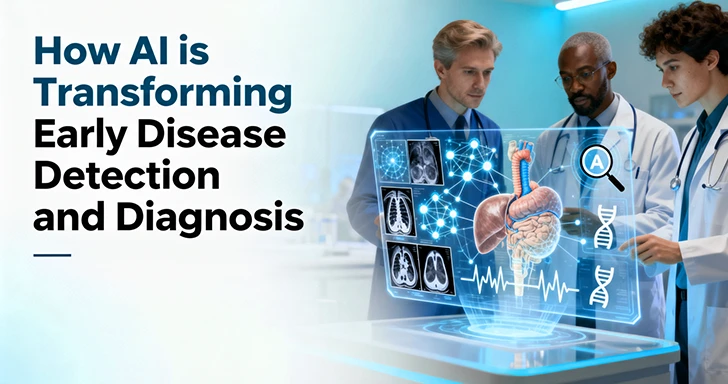Artificial Intelligence (AI) is no longer just a futuristic buzzword—it is a technology that is reshaping industries, and healthcare stands at the forefront of this transformation. One of the most promising areas of impact is early disease detection and diagnosis. With its ability to analyze massive amounts of medical data, identify patterns, and deliver faster insights, AI is making it possible to detect diseases earlier than ever before. From cancer to cardiovascular disorders, AI is helping doctors provide more accurate and timely diagnoses, improving survival rates and reducing healthcare costs.
In this blog, we will explore the importance of early disease detection, how AI works in diagnostics, real-world applications across various diseases, benefits, challenges, and what the future holds for AI-powered healthcare.
Why Early Detection Matters in Healthcare
Detecting diseases at an early stage can mean the difference between life and death. According to medical research:
- Cancer: Survival rates increase drastically when diagnosed in the first stage compared to advanced stages.
- Diabetes: Early detection helps patients manage blood sugar levels and prevent complications such as kidney failure or blindness.
- Heart Disease: Identifying irregularities before a cardiac event reduces hospitalization and saves lives.
Unfortunately, traditional diagnosis often relies on manual interpretation of scans, lab reports, and symptoms. This can lead to delays or errors due to human limitations, lack of resources, or access to specialized care. AI in healthcare bridges this gap by providing accurate, fast, and scalable solutions for disease detection.
How AI Works in Disease Detection
AI relies on technologies like machine learning (ML), deep learning (DL), and natural language processing (NLP) to analyze medical data.
- Medical Imaging Analysis: AI can interpret X-rays, CT scans, and MRIs to identify anomalies that even experienced radiologists may miss.
- Predictive Analytics: By examining genetic markers and patient histories, AI predicts the likelihood of developing certain diseases.
- Electronic Health Records (EHRs): NLP tools scan through thousands of patient records to spot hidden trends or risk factors.
- Wearable Devices: AI integrates with smartwatches and health monitors to detect irregularities in heart rate, oxygen levels, and blood pressure in real time.
This combination of big data, automation, and advanced algorithms allows AI to detect diseases much earlier, enabling preventive care.

Real-World Applications of AI in Early Disease Detection
1. Cancer Detection
Cancer is one of the most researched areas where AI is making a difference. For example, Google’s DeepMind AI has achieved accuracy levels comparable to top oncologists in detecting breast cancer from mammograms. Similarly, AI tools are being used to detect lung cancer nodules and melanoma at very early stages. This reduces the dependency on invasive procedures and ensures treatment begins earlier.
2. Cardiovascular Diseases
Heart diseases remain the leading cause of death worldwide. AI algorithms can analyze ECG patterns, echocardiograms, and even lifestyle data to predict heart conditions before they become life-threatening. Companies like AliveCor and IBM Watson Health are leveraging AI for heart monitoring and predictive risk analysis.
3. Diabetes and Eye Health
Diabetic patients are at high risk of developing diabetic retinopathy, a condition that can cause blindness. AI systems like IDx-DR, approved by the FDA, use retinal images to detect early signs of damage. Similarly, AI models are being used to predict Type 2 diabetes risk by analyzing patient histories and lifestyle factors.
4. Neurological Disorders
Conditions like Alzheimer’s and Parkinson’s often go undiagnosed until symptoms worsen. AI is being trained to recognize early changes in brain scans and speech or movement patterns, enabling earlier intervention. This not only helps in slowing disease progression but also improves patient quality of life.
5. Infectious Diseases
During the COVID-19 pandemic, AI played a vital role in analyzing CT scans, predicting virus spread, and even accelerating vaccine research. Beyond COVID-19, AI is being applied to detect tuberculosis, malaria, and sepsis quickly, especially in regions with limited healthcare infrastructure.

Key Benefits of AI in Early Disease Diagnosis
The adoption of AI in healthcare offers multiple advantages:
- Improved Accuracy – AI minimizes human error by analyzing large datasets with consistency.
- Faster Diagnosis – Automated systems process scans and lab results much faster than manual methods.
- Cost Savings – By detecting diseases early, patients avoid expensive late-stage treatments.
- Personalized Medicine – AI tailors treatment plans based on a patient’s genetic profile and history.
- Accessibility – AI tools help bring diagnostic services to remote or underdeveloped areas where specialists are scarce.
- Workload Reduction – AI assists doctors by handling repetitive tasks, allowing them to focus on patient care.
Challenges Facing AI in Healthcare
While AI brings promise, there are challenges that need attention:
- Data Privacy: Patient data must be safeguarded against breaches and misuse.
- Algorithm Bias: If AI systems are trained on limited datasets, they may deliver biased results.
- Integration Issues: Hospitals require modern infrastructure to support AI tools.
- Regulatory Compliance: Approval from health authorities is essential for AI systems to be used widely.
- Trust and Adoption: Doctors and patients may hesitate to fully rely on AI-based decisions without human oversight.
Addressing these challenges will determine how quickly AI adoption scales in healthcare systems globally.

The Future of AI in Early Disease Detection
The future of AI in diagnostics looks incredibly promising. With ongoing advancements in genomics, wearable devices, cloud computing, and predictive analytics, AI is moving closer to real-time disease monitoring and preventive healthcare.
Imagine a future where:
- Your smartwatch detects an irregular heartbeat and alerts your doctor immediately.
- AI apps on smartphones scan your skin for early signs of cancer.
- Genetic AI models predict your likelihood of developing diseases years in advance, allowing preventive action.
AI will not replace doctors—it will empower healthcare professionals to make better decisions, reduce workloads, and improve patient outcomes. Instead of spending hours on reports, doctors can focus on treatment and patient care while AI handles analysis.
Conclusion
AI is transforming healthcare, particularly in the area of early disease detection and diagnosis. From cancer and heart disease to neurological and infectious conditions, AI is providing faster, more accurate, and cost-effective solutions. While challenges around privacy, regulation, and trust remain, the benefits of AI in healthcare are too significant to ignore.
As technology continues to evolve, AI will become a standard part of diagnostic care, making healthcare more proactive than reactive. The earlier diseases are detected, the better the chances of survival, treatment success, and improved quality of life.
The future of healthcare is not just digital—it is intelligent, data-driven, and powered by AI.


